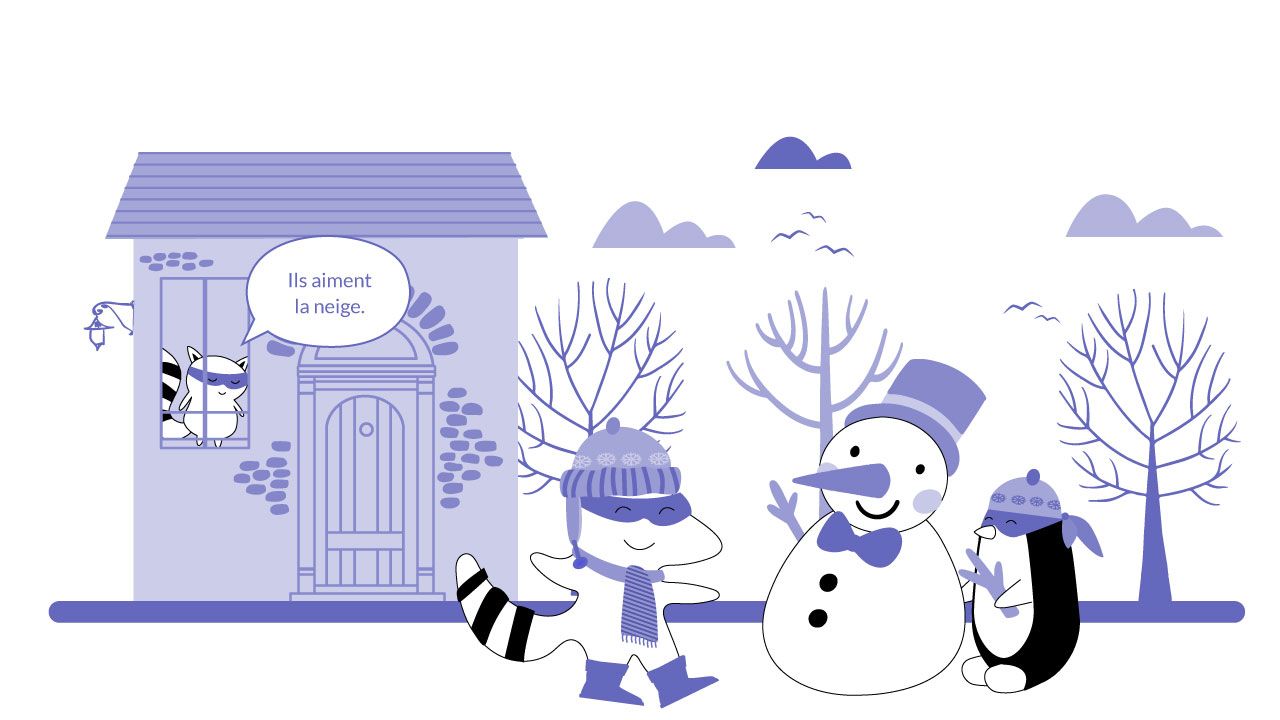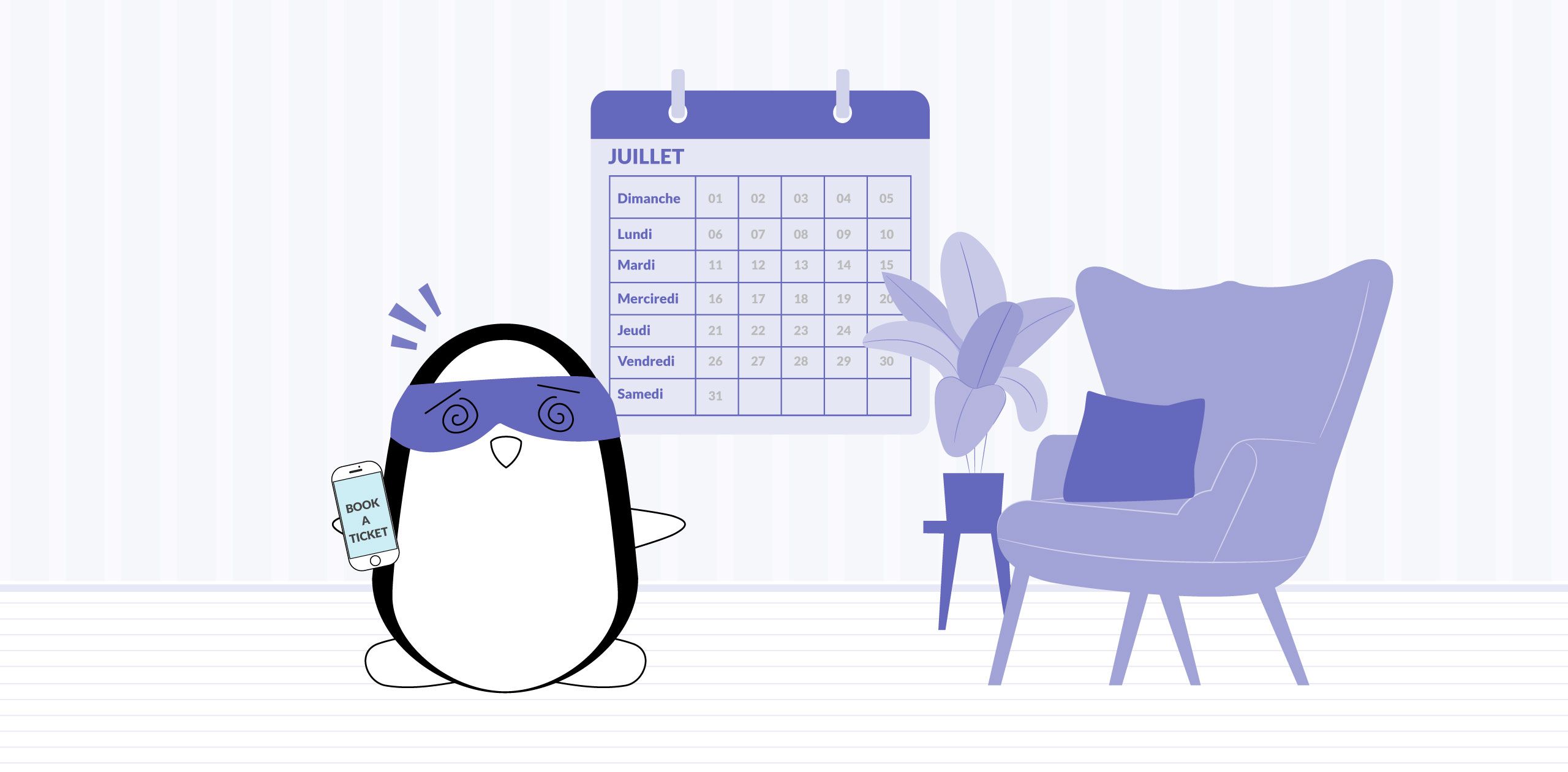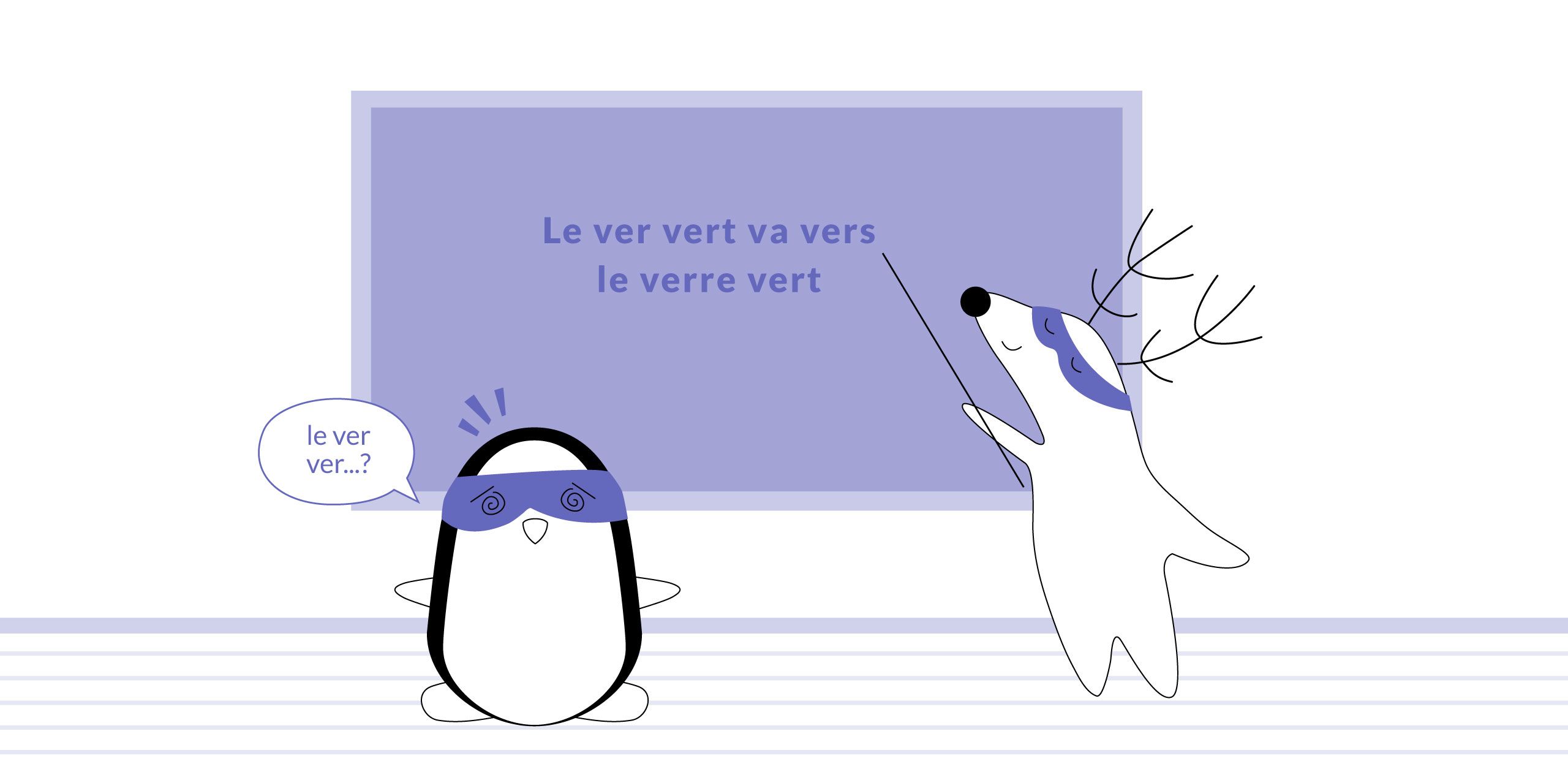
Where would a language be without the verbs? Would you be able to say that you’re hungry and want to eat? Or explain where you’re going? Or tell your loved one you adore them? Probably not, especially if your language skills are on an A1 level.
Knowing at least some verbs in a foreign language can make your life much easier - and the communication with other people a lot clearer.
There are many verbs in French, but you don’t need to learn all of them at once. Now that you’re beginning your journey with the French language, it might be enough to just learn the most common verbs and their conjugation in the present tense.
Today we’re going to help you with that simple task. Below, you will find the list of the 15 most commonly used French verbs. We’ll also show you how they are conjugated and explain some things that can be confusing. Read on, and boost your French grammar skills.
Learn French with Langster
15 Common French Verbs
For the list below, we have carefully chosen the 15 most common and most practical verbs you might encounter. There, you will find verbs such as “to be,” “to go,” “to want,” or “to love.” Only the essentials, as you will see.
Whether you’re planning to visit France or want to communicate with native speakers in the near future, all of these can definitely ease your life. So read them, memorize them (writing them down might help), and make good use of them when practicing your speaking. Good luck!
1. Être – To Be
No one will argue that the verb être (to be) is the most common verb in the French language. Not only can you use it the same way as you would with the English version of this word, but it also often serves as a support verb for compound verb tenses.
Now, let’s take a look at the way it’s conjugated using the example phrase “I am happy.”
| je suis heureux |
| tu es heureux |
| il/elle/on est heureux(euse) |
| nous sommes heureux(se) |
| vous êtes heureux(se) |
| ils/elles sont heureux(se) |
| je suis heureux |
| tu es heureux |
| il/elle/on est heureux(euse) |
| nous sommes heureux(se) |
| vous êtes heureux(se) |
| ils/elles sont heureux(se) |
Note that like most verbs on our list, être is irregular, which means it doesn’t abide by the regular conjugation rules.

2. Avoir – To Have
This is another verb that is commonly used not only by itself but also in different grammatical constructions. Just like être, it’s irregular.
Here’s a conjugation example with the phrase “I have a dog.”
| j'ai un chien |
| tu as un chien |
| il/elle/on a un chien |
| nous avons un chien |
| vous avez un chien |
| ils/elles ont un chien |
| j'ai un chien |
| tu as un chien |
| il/elle/on a un chien |
| nous avons un chien |
| vous avez un chien |
| ils/elles ont un chien |
An interesting thing to note here - instead of je ai in the first person singular you will say j’ai. This happens because when used with the verb starting with a vowel or a silent h, the pronoun je gets contracted.
3. Faire – To Do, To Make
Just like in English, the verb faire (to do) is essential in French - you won’t be able to say much without it. Here’s how it’s conjugated.
“To do one’s homework”:
| je fais mes devoirs |
| tu fais tes devoirs |
| il/elle/on fait ses devoirs |
| nous faisons nos devoirs |
| vous faites vos devoirs |
| ils/elles font leurs devoirs |
| je fais mes devoirs |
| tu fais tes devoirs |
| il/elle/on fait ses devoirs |
| nous faisons nos devoirs |
| vous faites vos devoirs |
| ils/elles font leurs devoirs |
As you can see, it’s also irregular. You may have also noticed the added pronoun mes/tes/ses. Don’t worry about that for now and just focus on the verbs.
4. Dire – To Say, To Tell
The verb dire is used when you want to say something or tell somebody something. However, be careful - if you wanted to tell somebody about/of something, you would use the verb parler (to speak).
“To be telling the truth”:
| je dis la vérité |
| tu dis la vérité |
| il/elle/on dit la vérité |
| nous disons la vérité |
| vous dites la vérité |
| ils/elles disent la vérité |
| je dis la vérité |
| tu dis la vérité |
| il/elle/on dit la vérité |
| nous disons la vérité |
| vous dites la vérité |
| ils/elles disent la vérité |
Of course, this is another irregular French verb - if you have checked our conjugation guide, you might have already noticed that.
Another thing you might have noticed already - in French, the present tense is used both as the present simple and present continuous tenses in English. There’s no separate continuous tense in the French language.
5. Aller - To Go
Another common and another irregular French verb for your vocabulary - aller (to go). It’s extremely useful and you will probably say it a lot.
“To go to the school”:
| je vais à l'école |
| tu vas à l'école |
| il/elle/on va à l'école |
| nous allons à l'école |
| vous allez à l'école |
| Ils/elles vont à l'école |
| je vais à l'école |
| tu vas à l'école |
| il/elle/on va à l'école |
| nous allons à l'école |
| vous allez à l'école |
| Ils/elles vont à l'école |

6. Pouvoir - To Be Able To
Now we’ve come across the group of the four verbs that are commonly grouped together: pouvoir (to be able to), vouloir (to want), savoir (to know), and devoir (to have to) which all follow a similar conjugation pattern. All of them can be used by themselves but also in the conditional mood.
“To be able to swim/… can swim”:
| je peux nager |
| tu peux nager |
| il/elle/on peut nager |
| nous pouvons nager |
| vous pouvez nager |
| ils/elles peuvent nager |
| je peux nager |
| tu peux nager |
| il/elle/on peut nager |
| nous pouvons nager |
| vous pouvez nager |
| ils/elles peuvent nager |
7. Vouloir - To Want
Let’s look at the example “to want a pet.” Read carefully and note the similarities in conjugation between “vouloir” and “pouvoir.”
| je veux un animal de compagnie |
| tu veux un animal de compagnie |
| il/elle veut un animal de compagnie |
| nous voulons un animal de compagnie |
| vous voulez un animal de compagnie |
| ils/elles veulent un animal de compagnie |
| je veux un animal de compagnie |
| tu veux un animal de compagnie |
| il/elle veut un animal de compagnie |
| nous voulons un animal de compagnie |
| vous voulez un animal de compagnie |
| ils/elles veulent un animal de compagnie |

8. Devoir – Must, To Have To
Here, we have the same situation as before. Check the examples and see how similarly the conjugation works.
“To have to go to school”:
| je dois aller à l'école |
| tu dois aller à l'école |
| il/elle/on doit aller à l'école |
| nous devons aller à l'école |
| vous devez aller à l'école |
| ils/elles doivent aller à l'école |
| je dois aller à l'école |
| tu dois aller à l'école |
| il/elle/on doit aller à l'école |
| nous devons aller à l'école |
| vous devez aller à l'école |
| ils/elles doivent aller à l'école |
9. Savoir - To Know
And, finally, the fourth verb in this group - savoir (to know). Here’s the conjugation example with the phrase “to know how to speak French”:
| je sais parler français |
| tu sais parler le français |
| il/elle/on sait parler le français |
| nous savons parler le français |
| vous savez parler le français |
| ils/elles savent parler le français |
| je sais parler français |
| tu sais parler le français |
| il/elle/on sait parler le français |
| nous savons parler le français |
| vous savez parler le français |
| ils/elles savent parler le français |
Another thing to note here is that all these three verbs are used in constructions with an infinitive when another verb is present. So, for example, in the phrase je sais parler français (I know how to speak French) the verb savoir is conjugated and the verb parler is used in the infinitive.
10. Connaître - To Know
Yes, there are two verbs in the French language that both mean “to know.” So, what’s the difference?
The explanation is pretty complex, and you will master it with time. For now, it might be enough for you to know that savoir means “to know something” like a fact or a skill and connaître means “to know someone,” “to be acquainted with someone,” or “to be familiar with something/someone.”
For example, “to know someone’s neighbors”:
| je connais mes voisins |
| tu connais tes voisins |
| il/elle/on connaît ses voisins |
| nous connaissons nos voisins |
| vous connaissez vos voisins |
| ils/elles connaissent leurs voisins |
| je connais mes voisins |
| tu connais tes voisins |
| il/elle/on connaît ses voisins |
| nous connaissons nos voisins |
| vous connaissez vos voisins |
| ils/elles connaissent leurs voisins |
11. Venir - To Come
This is also a pretty common French verb - however, it’s not on our list just because of that. Even though venir is an irregular verb, it has a certain conjugation pattern which is similar to many other verbs - such as devenir (to become), revenir (to come back), and even tenir (to hold/keep).
Moreover, this works not only for the present tense conjugation but also for the past participle form of these verbs. For example, venir - venu, devenir - devenu.
“To be coming to Paris”:
| je viens à Paris |
| tu viens à Paris |
| il/elle/on vient à Paris |
| nous venons à Paris |
| vous venez à Paris |
| ils/elles viennent à Paris |
| je viens à Paris |
| tu viens à Paris |
| il/elle/on vient à Paris |
| nous venons à Paris |
| vous venez à Paris |
| ils/elles viennent à Paris |
12. Voir - To See
This is a pretty simple irregular verb, and it even has some similarities with other verbs with the same ending -oir.
“To see the horizon”:
| je vois l'horizon |
| tu vois l'horizon |
| il/elle/on voit l'horizon |
| nous voyons l'horizon |
| vous voyez l'horizon |
| ils/elles voient l'horizon |
| je vois l'horizon |
| tu vois l'horizon |
| il/elle/on voit l'horizon |
| nous voyons l'horizon |
| vous voyez l'horizon |
| ils/elles voient l'horizon |
13. Donner - To Give
Finally, a regular verb! Donner (to give) has the -er ending, which means it belongs to the I conjugation group and follows a regular conjugation pattern. Here, take a look at the example with the phrase “to give someone a book”:
| je te donne le livre |
| tu me donnes le livre |
| il/elle/on me donne le livre |
| nous vous donnons le livre |
| vous nous donnez le livre |
| ils/elles nous donnent le livre |
| je te donne le livre |
| tu me donnes le livre |
| il/elle/on me donne le livre |
| nous vous donnons le livre |
| vous nous donnez le livre |
| ils/elles nous donnent le livre |
Again, these sentences all contain pronouns, but for now it’s best to focus on the verbs.
14. Falloir - To Need/To Be Necessary
Falloir (to be necessary) is an irregular verb, but it’s also not like any other verb on our list. It has just one conjugation and is used only with the third person singular with the impersonal pronoun “il.”
French
English
Il faut
It’s necessary
This way, when conjugated, it forms an impersonal phrase “it’s necessary.” To create a full sentence, you simply add a verb in the infinitive. For example:
French
English
Il faut rentrer à la maison.
It’s necessary to go back home.
15. Aimer - To Love
And, finally, the last verb on our list is aimer (to love). After all, French is often called the language of love, so knowing this French verb is a must. Fortunately, it’s a regular verb, so you shouldn’t have trouble learning it.
“I love snow”:
| j'aime la neige |
| tu aimes la neige |
| il/elle/on aime la neige |
| nous aimons la neige |
| vous aimez la neige |
| ils/elles aiment la neige |
| j'aime la neige |
| tu aimes la neige |
| il/elle/on aime la neige |
| nous aimons la neige |
| vous aimez la neige |
| ils/elles aiment la neige |

Other Common French Verbs
Of course, there are many other common French verbs that you will come across in the near future. Today, we won’t show you how they are conjugated, but nevertheless, add a short list of the verbs you might need to remember:
French
English
attendre
to wait
croire
to believe
manger
to eat
appeler
to call
mettre
to put
prendre
to take
entendre
to hear
demander
to ask
trouver
to find
montrer
to show
finir
to finish
rester
to stay
Final Thoughts
Now you are familiar with the most common verbs in French, how does it feel? Thanks to these verbs, you will now be able to create short sentences in French, explain to the native speakers what you want, talk about yourself, and even express love. Pretty helpful, if you ask us.
Of course, just knowing the verbs is not enough. You still need to work on your grammar, writing, and speaking skills if you want to communicate clearly in French. This means you need to practice - and you can do that and have fun if you download Langster.
In this simple app, you will be able to read daily interesting news and stories appropriate to your level (from A1 to C1). There’s also an option to translate the words you don’t know automatically, listen to the native speaker reading the story, learn grammar, and fulfill a short quiz afterward to check what you’ve learned. Sounds engaging? Then check it out.









